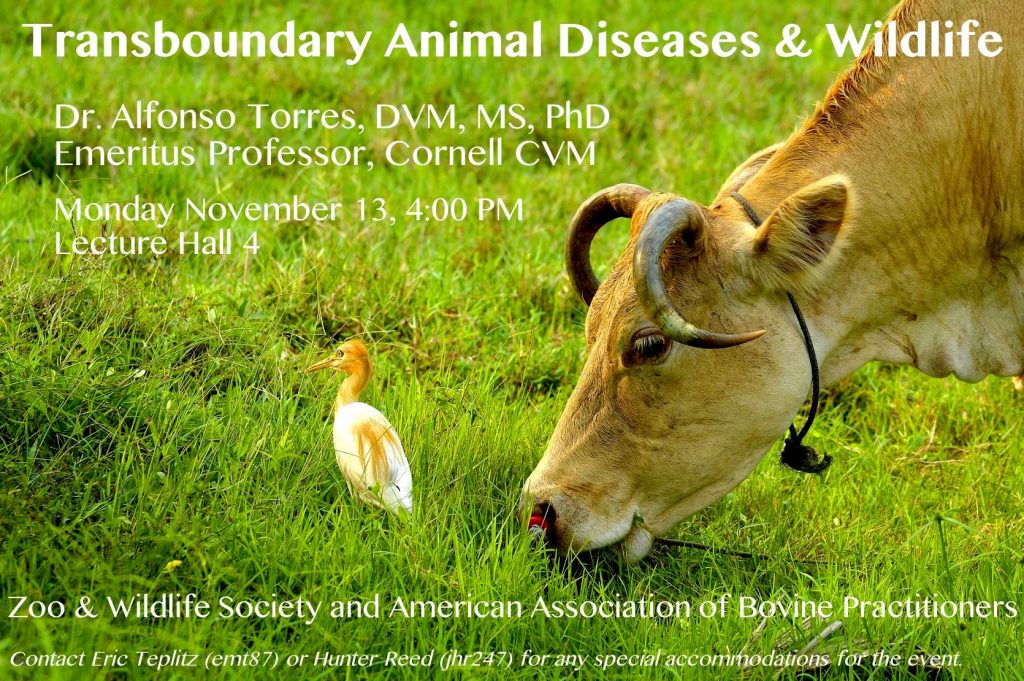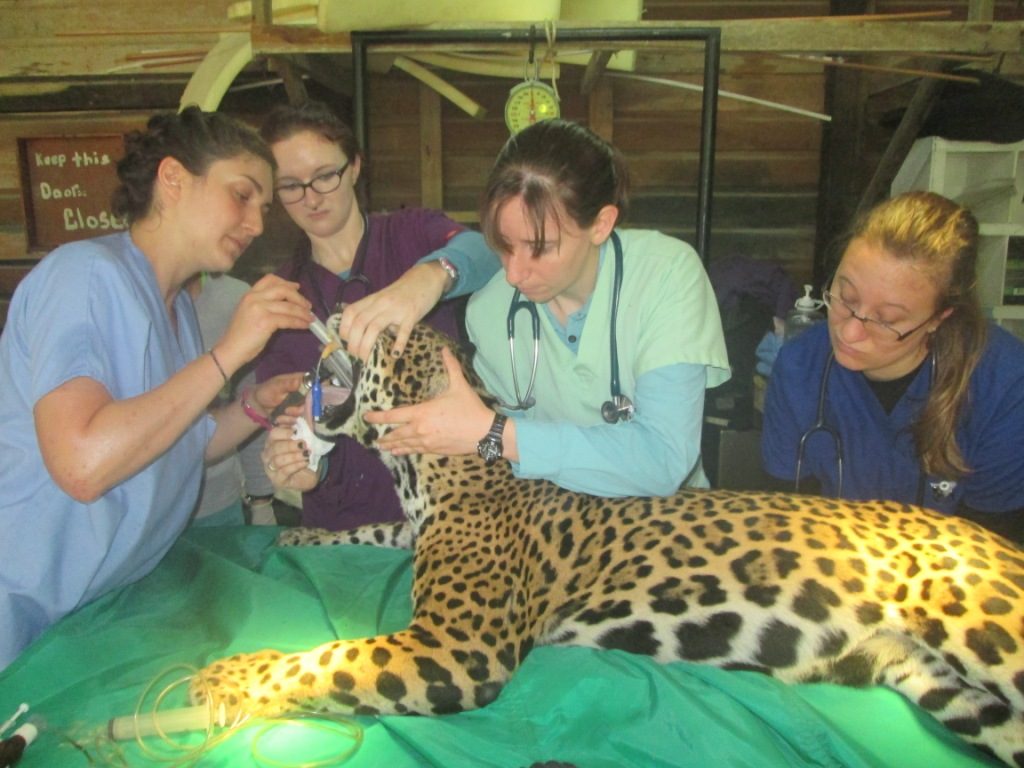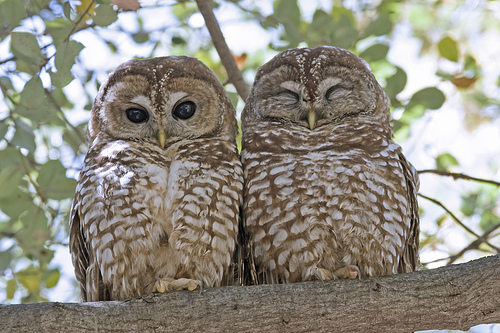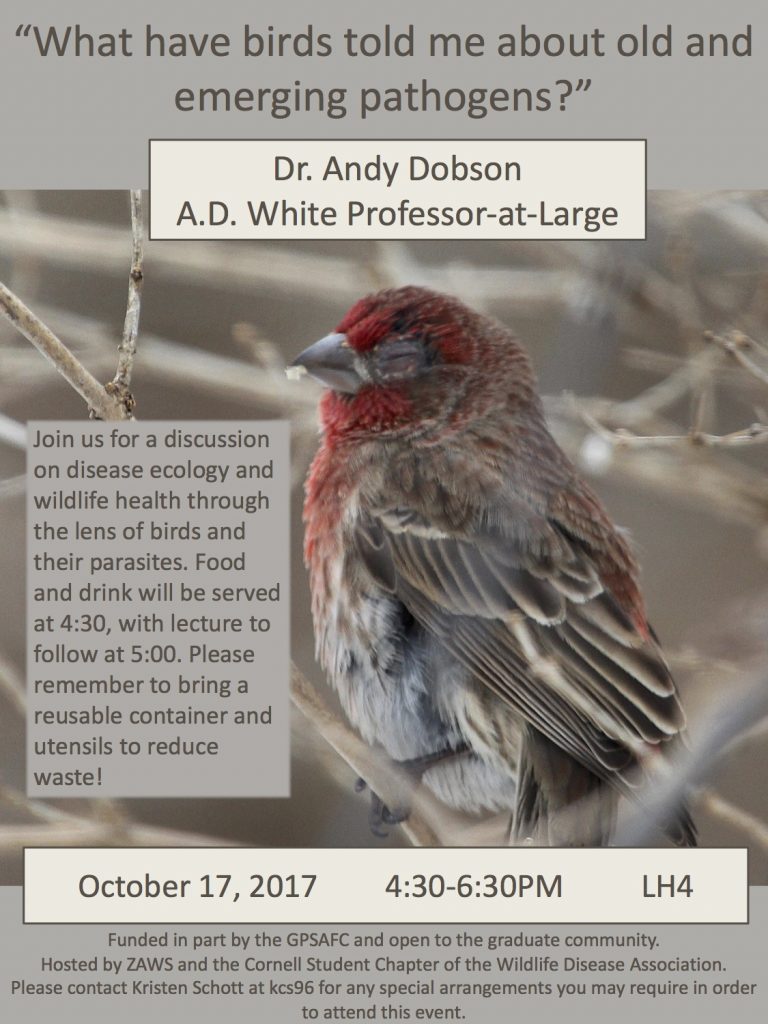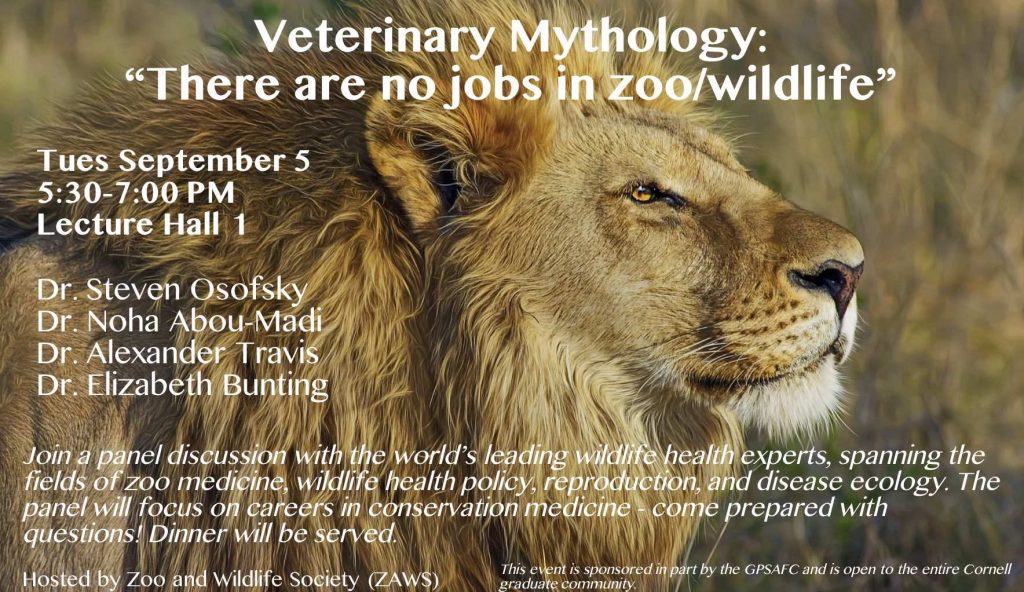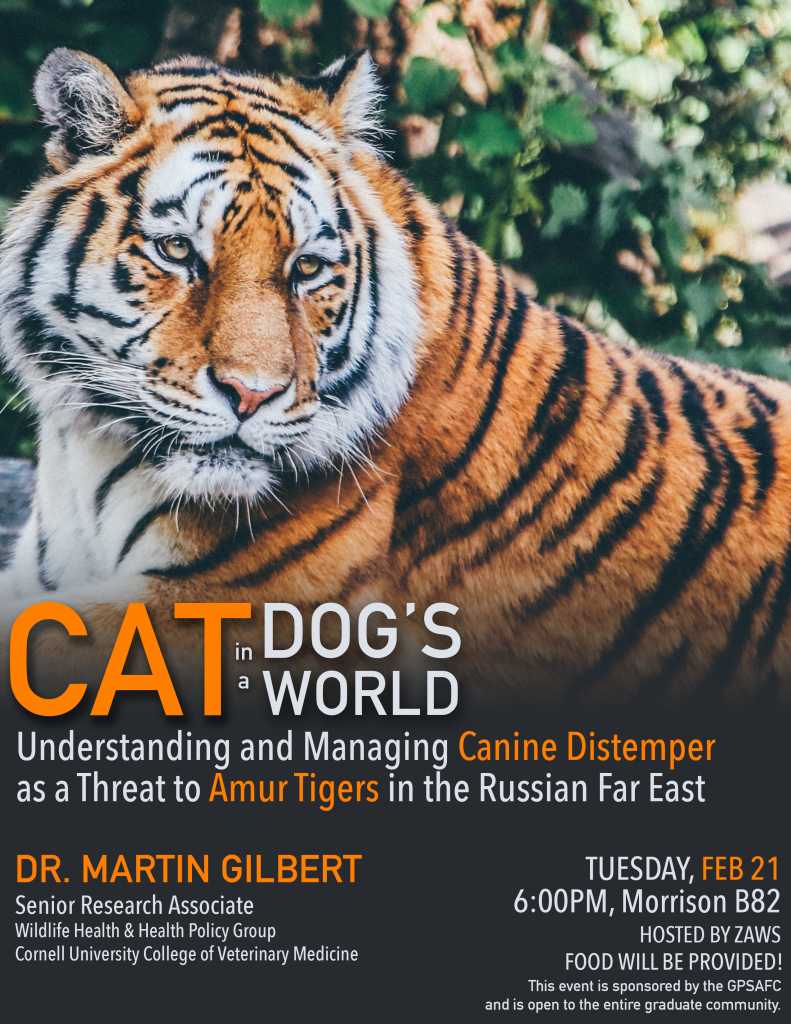
During this 1st annual event, ZAWS will be bringing a selection of diverse speakers, lecturing on topics ranging from the role of reproduction in conservation, the effects of plastic on biodiversity loss, and the importance of nutrition for wildlife conservation.
Featuring Keynote Speaker: Dr. Sharon Deem, Director of the Saint Louis Zoo Institute for Conservation Medicine
Veterinary Medicine in the Anthropocene Epoch:
The lecture will focus on the current challenges of the 21st century: minimizing the loss of biodiversity, feeding 7.6 billion people without causing too much harm to the planet, and mitigating the negative impacts of climate change on animal health. The lecture will be from the perspective of a wildlife veterinarian and her 20+ years of working on free-living wildlife health issues and with zoo collection animals at AZA accredited zoos. Dr. Deem will share stories from her work with elephants in Asia and Africa, turtle species from all over the world, and disease issues at the livestock–wildlife interface. Dr. Deem will also showcase what a veterinarian starting out can do for One Health.
Other speakers include:
Mariah Beck
Jason Sifkarovski
Zack Dvornicky-Raymond
Dr. Sara Childs-Sanford
Dr. Elizabeth Buckles
Dr. Robin Radcliffe
This lecture series will be followed by dinner and the keynote presentation.
Date and Time: Saturday, February 10, 2018, 12:30pm to 8pm
Location: Cornell College of Veterinary Medicine Atrium
Register here or through the email sent out on the ZAWS listserv.

